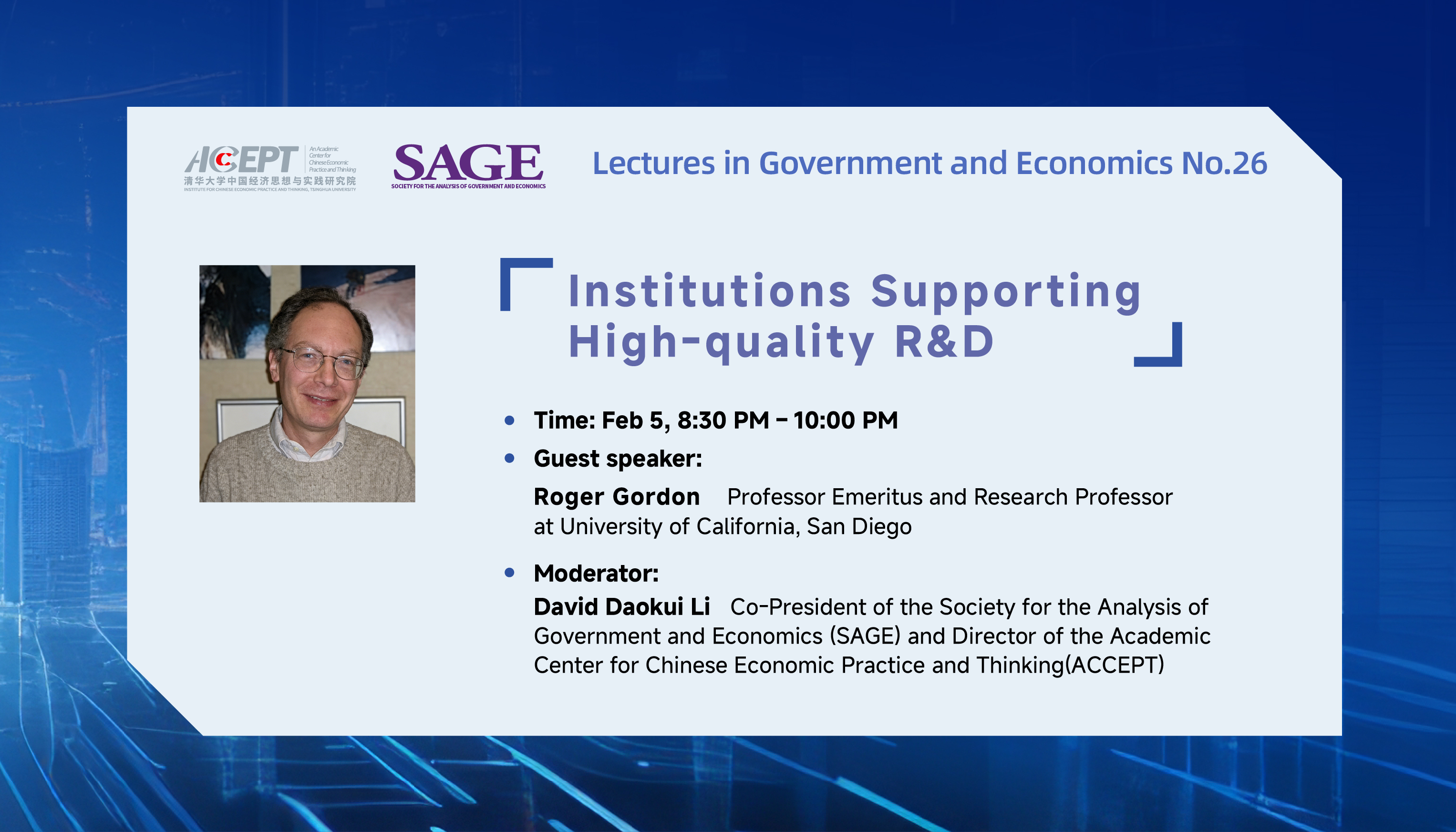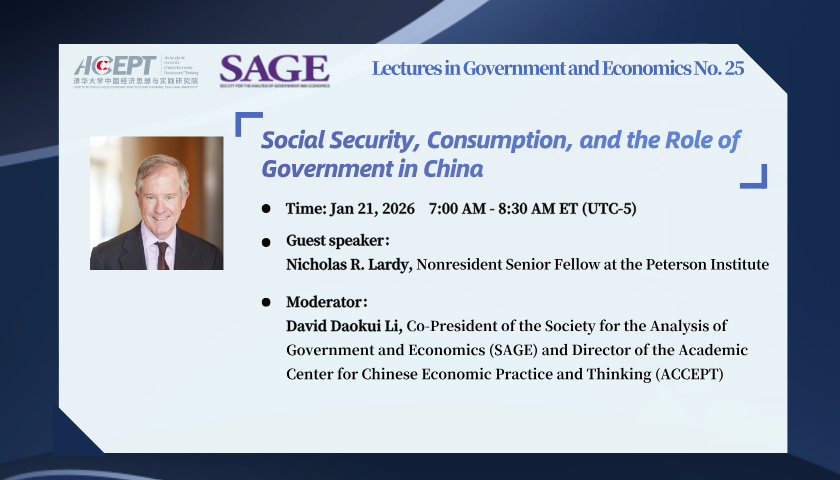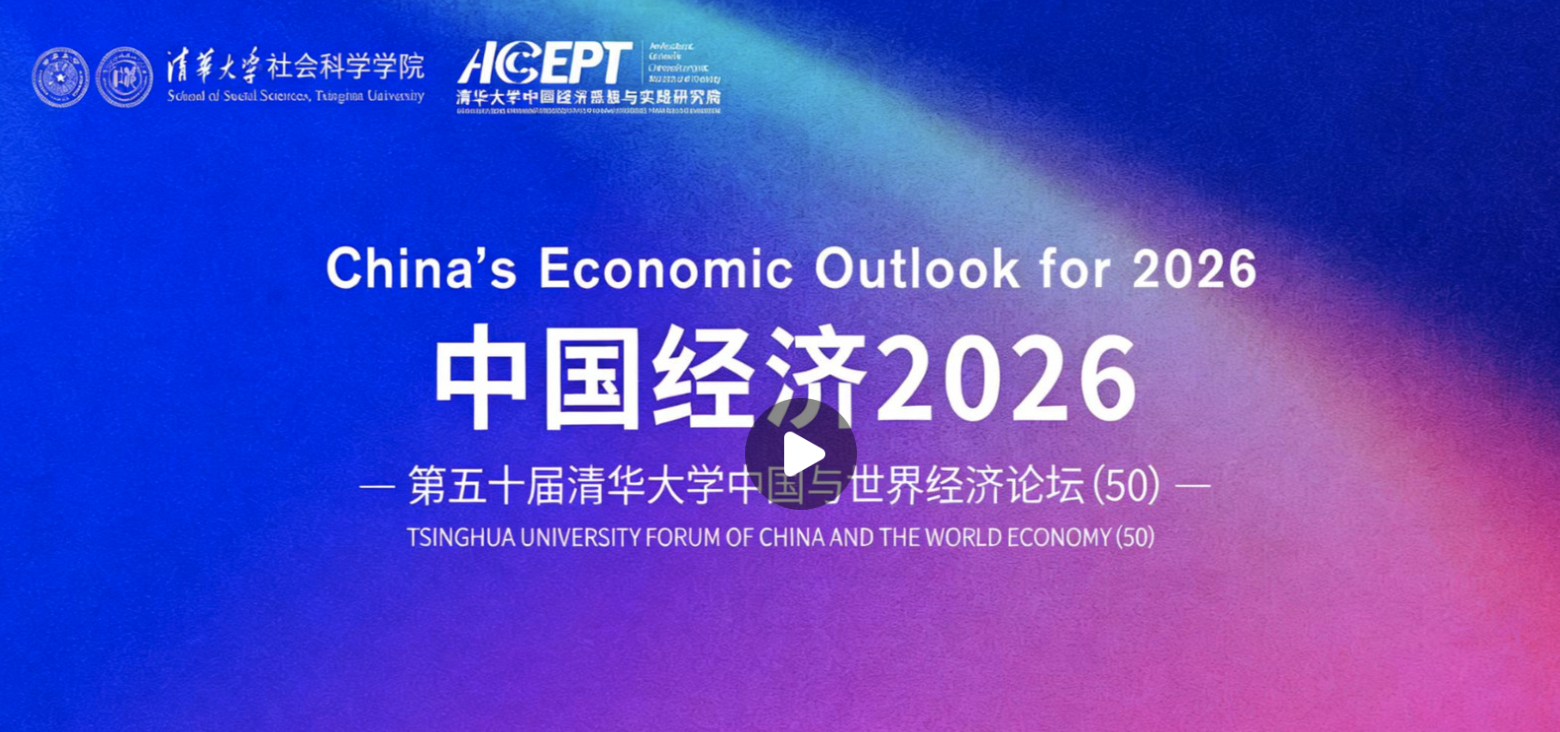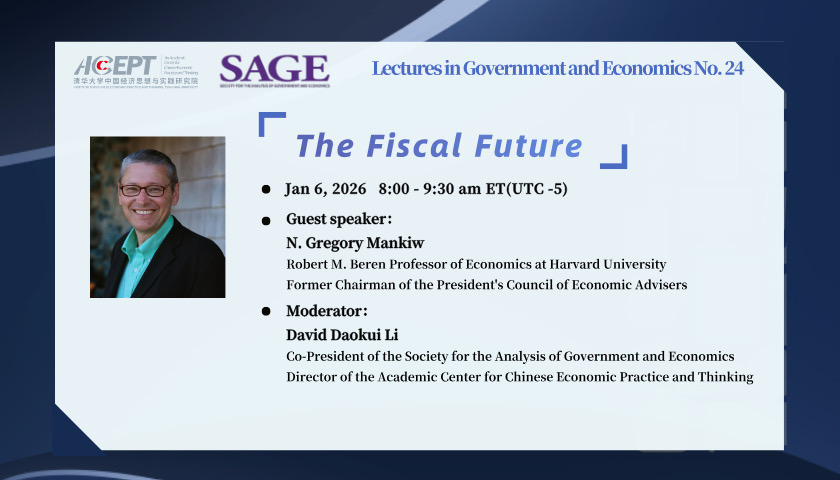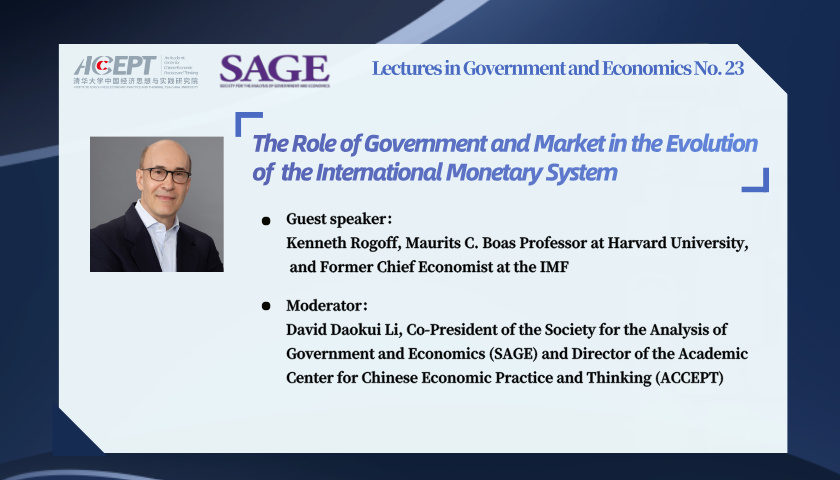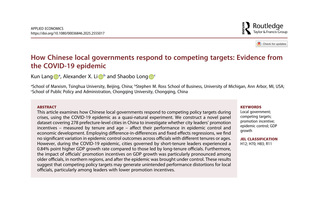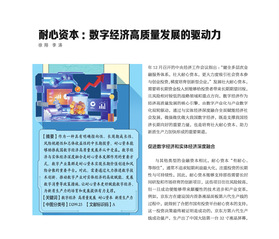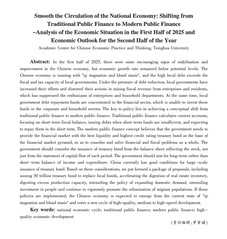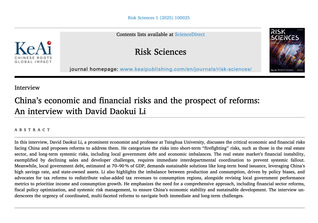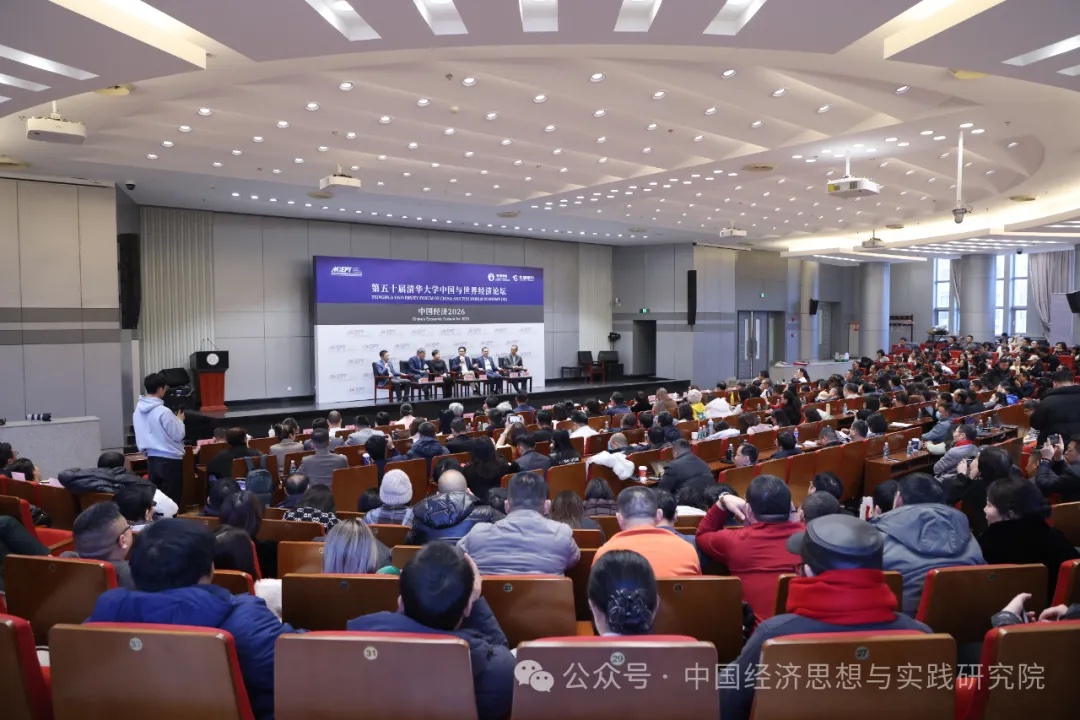-
JGE | Paper Submission Now Open
Submit Your Paper -
Become a SAGE member
JOIN TODAY
Latest Research
View All >-
Academic Papers
Journal Article: "How Chinese Local Governments Respond to Competing Targets: Evidence from the COVID-19 Epidemic"
This article examines how Chinese local governments respond to competing policy targets during crises, using the COVID-19 epidemic as a quasi-natural experiment. We construct a novel panel dataset covering 278 prefecture-level cities in China to investigate whether city leaders’ promotion incentives – measured by tenure and age – affect their performance in epidemic control and economic development. Employing difference-in-differences and fixed effects regressions, we find no significant variatiLang Kun, Alexander X. Li, Shaobo Long -
Academic Papers
Journal Article: "Patient Capital: The Driving Force Behind the Digital Economy's High-Quality Development"
As a medium and long-term investment with clear direction, long-term growth, risk aversion and overall returns, patient capital can promote the high-quality development of China's digital economy and benefit from it. The deep integration of the digital economy and the real economy is an important way for patient capital to play a role, and digital industrial clusters are an important platform for patient capital to achieve long-term value creation and risk diversification. In this regard,Xu Xiang, Li Tao -
Reports
ACCEPT Report: "Smooth the Circulation of the National Economy: Shifting from Traditional Public Finance to Modern Public Finance—Analysis of the Economic Situation in the First Half of 2025 andEconomic Outlook for the Second Half of the Year"
In the first half of 2025, there were some encouraging signs of stabilization and improvement in the Chinese economy, but the economic growth rate remained below potential levels. The Chinese economy is running with "qi stagnation and blood stasis," and the high local debt exceeds the fiscal and tax capacity of local governments. Under the pressure of debt reduction, local governments have increased their efforts and distorted their actions in raising fiscal revenue from enterprises and residenACCEPT Macro Forecasting Group -
Opinions
China’s economic and financial risks and the prospect of reforms: An interview with David Daokui Li
In this interview, David Daokui Li, a prominent economist and professor at Tsinghua University, discusses the critical economic and financial risks facing China and proposes reforms to address them. He categorizes the risks into short-term “firefighting” risks, such as those in the real estate sector, and long-term systemic risks, including local government debt and economic imbalances. The real estate market’s financial instability, exemplified by declining sales and developer challenges, requiRisk Sciences
News
View All >-
Zhang Bin: Turnaround in asset prices imminent as upbeat performance expected for real estate market in 2026
ACCEPT 2026-01-14 -
Qin Hong: Differentiation in the real estate market has entered a full-dimensional and all-inclusive stage
ACCEPT 2026-01-14 -
Lu Ting: Investment firms “have struck an optimistic tone” despite downward economic pressure in second half of 2025
ACCEPT 2026-01-14 -
Da Wei: AI has become key area of competition between China and the US
ACCEPT 2026-01-14
Government and Economics
-
New structural economics: A framework of studying government and economics
AbstractNew structural economics is a new framework for rethinking economic development following structuralism and neoliberalism after World War II. This framework uses a neoclassical approach to study the determinants of economic structure and its evolution in a countrys economic development (Lin, 2011). We argue that a countrys economic structure is endogenous to its factor endowments, and that the key for developmental success is to have a facilitating government to help entrepreneurs overcoJustin Yifu Lin -
Migration and redistribution: Why the federal governance of an economic union does matter
Federal governance matters. Policy coordination allows the economic union to exercise monopsony power over migrants. Therefore the migration volumes under the policycompetition regime exceed those under the policy-coordination regime. With loose federal governance, competition over low-skilled migrants, who come with no capital, induces the individual member state to raise the provision of social benefit, so as to attract more migrants when starting from the coordination equilibrium. As a resultAssaf Razin, Efraim Sadka -
Government and economics: An emerging field of study
In this paper, we discuss the field of government and economics, an emerging body of work that aims to better understand government's role, incentives and behavior in a modern market economy, as well as how government actions shape the economy's performance.David Daokui Li, Eric S. Maskin -
Zheng Zhijie: Respect the market and improve the role of government
Excerpts from Zheng Zhijie's presentation at “Collapse and Rebirth” – IFENG Finance 9thSummit, translated by ACCEPTIn his remarks at the IFENG Finance 9thSummit, Zheng Zhijie, Former President of the China Development Bank, pointed out that the 14thFive-Year Plan period is a critical time for China to overcome the middle-income trap. To make full use of this decisive time, the first priority is to comprehensively deepen reforms to promote better integration of effective markets and capable goverExcerpts from Zheng Zhijie's presentation at “Collapse and Rebirth” – IFENG Finance 9th Summit, translated by ACCEPT -
Public Health, Elementary Education and Infrastructure Constitutes the Foundation of Future Economic Development
In the early years of the People's Republic of China, war, famine and infectious diseases made it difficult to ensure the basic health level of the people. In 1949, the average life expectancy in China was only 35 years, and the infant mortality rate was as high as 200‰1. Faced with such rigorous challenges and the lack of medical resources, China urgently needed to build a public health system to solve the most basic medical problems of the people.excerpted from Economic Lessons from 70 Years of China's Development
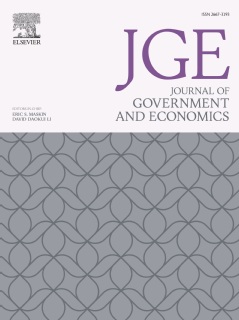
The Journal of Government and Economics is focused on publishing high caliber, original research papers in the field of government and economics. This journal aims to provide a platform for the exchange of insights on the relationship between the government and the market, create space for the development of the emerging field of government and economics, and foster a better understanding of the government's role in the market economy, as well as the government's incentives and behaviors. JGE is an international publication and the official publication of SAGE. It is also an open access (OA) and rapidly publishing (ABP) journal.
The Society for the Analysis of Government and Economics, SAGE, aims to promote academic research in the subject of government and economics, including topics such as the incentives, behavior, and role of the government in an economy. The Society is a disinterested, academic organization avoiding political, social, commercial, or nationalistic bias. The inaugural co-presidents of SAGE are 2007 Nobel Laureate Harvard Professor Eric S. Maskin and Professor David Daokui Li of Tsinghua University. The Society has an open international membership from countries such as the United States, Europe, China, and other developing countries. Main activities of the Society include organizing academic conferences and publishing an academic journal.
For more information, please visit http://en.sage-econ.org/



